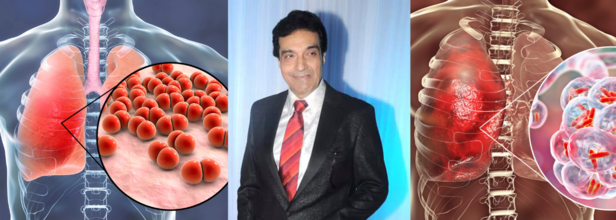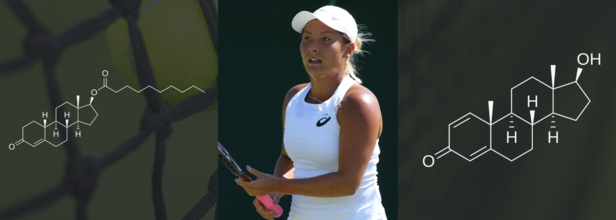- Health Conditions A-Z
- Health & Wellness
- Nutrition
- Fitness
- Health News
- Ayurveda
- Videos
- Medicine A-Z
- Parenting
- Web Stories
PCOS May Be Passed Down Through ‘Epigenetic Memory’ Even Before You Are Born—Could This Genetic Discovery Help Prevent It?

Credits: Health and me
Scientists may have discovered a critical clue that helps explain why polycystic ovary syndrome (PCOS)—a hormonal condition affecting up to 13% of women of reproductive age—tends to run in families. New research presented at the 41st Annual Meeting of the European Society of Human Reproduction and Embryology in Paris suggests that PCOS may be passed down not just through classic genetics, but through what’s known as epigenetic memory.
In simple terms, epigenetics is chemical change that affects how genes are switched on or off without actually changing the DNA sequence itself. These changes can be caused by environment, stress, and diet and more importantly, they can occasionally be passed on. This throws open the gate for a whole new perspective of PCOS as not only a genetic disorder but an epigenetic disorder, possibly heritable from mother to daughter through early cellular processes.
PCOS is characterized by an extensive array of symptoms that can significantly affect quality of life. They encompass irregular or heavy menstrual periods, ovarian cysts, weight gain, acne, hirsutism, thinning hair, and infertility. The disorder also elevates the risk of developing metabolic complications like hypertension, type 2 diabetes, and endometrial cancer.
Despite decades of studies, the underlying cause of PCOS has not been determined. Nonetheless, it is firmly established that the condition usually has an inherited pattern. PCOS is estimated to affect 20% to 40% of patients who have one affected mother or sister, and findings from twin studies—such as the Dutch Twin-Family Study—indicate a very strong genetic basis.
The research, led by Dr. Qianshu Zhu of Chongqing Medical University in China, explored the epigenetic signatures in egg cells and embryos from women who were receiving in vitro fertilization (IVF). Of the 230 women researched, 133 had PCOS while 95 did not.
The scientists tested both unfertilized egg cells and early embryos for epigenetic markers—chemical labels that perch on DNA and control gene expression. What they discovered was dramatic: egg cells and embryos from PCOS women had pervasive disturbances in important genes, especially those related to metabolism and early embryo growth.
Also, they found abnormalities in an epigenetic marker called H3K27me3, which is important for gene expression. These abnormalities were present in the egg cells and were inherited by the embryo—indicating that epigenetic signals might be inheritable, even prior to the onset of implantation.
This indicates that an epigenetic message is being transmitted from mother to embryo prior to implantation even starting," said Dr. Zhu. A woman's gene expression related to PCOS, in other words, might be pre-programmed into the development of the embryo from day one.
What Is Epigenetic Inheritance Exactly?
Whereas genetic mutations entail alterations in the DNA sequence itself, epigenetic inheritance refers to the passing on of gene expression patterns from one generation to the next. Such changes are initiated by lifestyle elements, but once they take root, they could be "remembered" by cells—and transmitted to offspring.
If these results hold up to further study, it may be that PCOS is inherited, at least in part, by epigenetic memory, which would explain its familial occurrence even in the absence of identifiable genetic mutations.
Dr. Sydney Chang, a fertility specialist and medical director of CCRM Fertility of Austin, said that the new discovery provides an explanation for why identical twins (who have 100% DNA in common) are much more likely to both develop PCOS compared to fraternal twins. "This indicates that much of the risk of developing PCOS is inherited by genes," she said—but possibly not so-called "traditional" genes.
Implications for IVF and Reproductive Health
The possible uses of this work are both thrilling and morally complicated. Dr. Zhu's lab implies IVF technology may eventually involve screening or intervening on the epigenetic level to prevent PCOS—perhaps by fine-tuning the gene expression of embryos prior to implantation—a frontier currently years from use in clinics, but in theory possible.
Also, this study may have an impact on how fertility clinics select embryos and further our knowledge of the direct influence of maternal health on early embryonic development.
But Zhu was quick to caution: these are laboratory-created embryos, not kids. His lab now is carrying out mouse studies to observe how these epigenetic alterations impact real offspring.
Why Early Detection Of PCOS Is Important for Women Health?
One of the most exciting implications of this research is that it has the potential to induce early diagnosis and treatment. Eventually, the findings may enable clinicians to identify risk of PCOS earlier in life—even prior to the onset of symptoms.
What is interesting about this research is that it validates a true genetic link among PCOS in families, It sheds light for early diagnosis and preventive interventions to keep PCOS from being passed through families.
In the future, this could translate into lifestyle or medical interventions that alter epigenetic expression before the condition fully develops, opening new doors in both prevention and personalized care.
Although the research provides an important new perspective on PCOS, it also brings as many questions as answers. How do those epigenetic changes cross-talk with environmental influences such as diet, stress, or hormonal exposure? Can they be undone later in life? Are they specific to PCOS, or can they have a role in other hormonal conditions as well?
Dr. Zhu's continued research in animal models will help work through these unknowns, but longitudinal studies and human clinical trials will be essential to translating the laboratory findings into actual practice.
PCOS has long baffled scientists and plagued patients with imprecise diagnoses, capricious symptoms, and too often, delayed treatment. But as new research points toward an epigenetic memory with risk that gets passed across generations, the disease may soon be explained not just as a hormonal imbalance—but as a biological inheritance that contemporary medicine can detect more effectively and one day, conceivably, interrupt.
Will This Genetic Breakthrough Prevent PCOS?
Yes, this gene find may open the door to possible prevention, but with significant qualifications. The research unveiled at the European Society of Human Reproduction and Embryology indicates that polycystic ovary syndrome (PCOS) might be affected not only by genes that are passed down, but by epigenetic memory—chemical modifications to DNA that influence the activation or deactivation of genes. Scientists discovered these epigenetic indicators in the egg cells and early embryos of women with PCOS, suggesting that the risk could be transmitted even before implantation.
Though that does not mean that we can stop PCOS today, knowledge of these processes provides the hope of targeted intervention during fertility treatments like IVF someday. But these results are early and from lab-produced embryos. Additional studies—particularly in animal models and ultimately in the clinic—will be needed before these findings can be used to prevent PCOS in people. Nevertheless, the research is an encouraging step toward ending the cycle of PCOS from one generation to the next.
Veteran Actor Dheeraj Kumar Dies At 79 Due To Acute Pneumonia

Credits: Canva and Wikimedia Commons
Veteran actor and producer Dheeraj Kumar, best known for his contributions to Hindi and Punjabi cinema, passed away at a private hospital in Mumbai on Tuesday, July 15. He was 79.
Admitted with Pneumonia, Succumbed to Organ Failure
According to sources close to the family, Kumar had been admitted to the Intensive Care Unit after being diagnosed with acute pneumonia. His health took a critical turn on Monday as he suffered multiple organ failure and was subsequently placed on ventilator support. He breathed his last around 11 AM on Tuesday, with his son by his side in his final moments.
A Career That Began With a Talent Contest
Dheeraj Kumar’s journey into the world of entertainment began in the mid-1960s, when he participated in a talent contest that also featured Rajesh Khanna and Subhash Ghai. In a 2012 interview with The Hindu, Kumar recalled:
“In a talent contest in Mumbai in the 1960s, three were selected to be actors among some 10,000 aspirants — Rajesh Khanna, myself and Subhash Ghai... He became a superstar.”
Also Read: Shubhanshu Shukla Returns From ISS, What All Medical Examinations Are Lined Up
Kumar went on to act in several films, including Rakhwala, Tyaag and Sargam, and shared screen space with many leading actors of the time. Over the years, he transitioned into television production and was known for creating popular shows such as Om Namah Shivay and Shree Ganesh. His last known collaboration with Rajesh Khanna was a TV series in 2019.
Understanding Pneumonia and Its Risks
As per the American Lung Association, pneumonia is an infection that causes inflammation in the air sacs (alveoli) of one or both lungs. These air sacs may fill with fluid or pus, leading to symptoms that range from mild to life-threatening. Acute pneumonia, in particular, can cause sudden and severe respiratory symptoms.
Some of the common symptoms include:
- Persistent cough with yellow, green, or bloody mucus
- High fever, sweating and chills
- Shortness of breath and chest pain while coughing or breathing
- Fatigue, nausea or vomiting
- Confusion, especially in older adults
Kumar’s condition is a reminder that pneumonia can escalate quickly, especially in older individuals or those with weakened immune systems.
Also Read: After Jannik Sinner, Tara Moore Makes News Failing Her Doping Test, Resulting In A 4-Year Long Ban
Can Pneumonia Be Fatal?
Yes, pneumonia can be deadly—especially when left untreated or when it occurs in high-risk individuals. According to global estimates, as noted by the American Lungs Association, over 1.8 million people die from pneumonia each year, with children under five in low-income countries being the most vulnerable. In older adults, complications such as respiratory failure, sepsis, or organ failure often lead to death.
Bacterial pneumonia is more likely to require hospitalization, but viral and fungal forms can also be life-threatening. Vaccines such as the pneumococcal vaccine and flu shots can significantly reduce the risk of infection, particularly in older adults.
Maintaining overall health, timely vaccinations, and early medical intervention are critical in preventing complications.
After Jannik Sinner, Tara Moore Makes News Failing Her Doping Test, Resulting In A 4-Year Long Ban

Credits: Wikimedia Commons and Canva
After Jannik Sinner's news of anti-doping test, British tennis player Tara Moore is also making news. The 32-year-old was Britain's top ranked women's doubles player when she was provisionally banned in May 2022. Again, she has been banned for four years for a doping offence, though she had been cleared for the same by an independent tribunal just 18 months ago.
She was tested positive for nandrolone and boldenone at a tournament in the Colombian capital Bogota the previous month.
The reason Moore provided was due to the ingestion of contaminated meat. While in December 2023, an independent tribunal ruled that contaminated meat was the reason that the test came positive and Moore "bore no fault or negligence"; the International Tennis Integrity Agency (ITIA) thinks otherwise.
ITIA has been upheld by the Court of Arbitration for Sport (Cas). In the March hearing, Cas said in a media release: "After reviewing the scientific and legal evidence, the majority of the Cas panel considered that the player did not succeed in proving that the concentration of nandrolone in her sample was consistent with the ingestion of contaminated meat."
This means Moore will not be free to play again until the start of 2028 season. "The panel concluded that Ms Moore failed to establish that the ADRV (Anti-Doping Rule Violation) was not intentional. The appeal by the ITIA is therefore upheld and the decision rendered by the Independent Tribunal is set aside."
The ITIA chief executive Karen Moorhouse told BBC,"For the ITIA, every case is considered according to the individual facts and circumstances. In this case, our independent scientific advice was that the player did not adequately explain the high level of nandrolone present in their sample. Today's ruling is consistent with this position."
What Do Nandrolone Decanoate And Boldenone Do To You?
Nandrolone Decanoate: As per a 2020 study published in journal Medicina, nandrolone decanoate is an androgen, which means it plays a significant role in the development of male reproductive organs. The study notes: "The clinical use of synthetic testosterone derivatives, such as nandrolone, is focused on maximizing the anabolic effects and minimizing the androgenic ones." The study also mentions that apart from its clinical use, skeletal muscles can be considered as the primary target tissue. "Nowadays, especially athletes in power sports such as bodybuilding and weightlifting administer illegally high doses of Anabolic Androgenic Steroids (AAS) to increase their muscle mass and improve their overall performance," notes the study.
Nandrolone Decanoate injections have been classified under the Anabolic Steroids Control Act of 1990 and due to its serious health risks, it is banned by most sports organization and is also listed in the prohibition list by the World Anti-Doping Agency (WADA).
Side Effects Include:
- Infertility
- Liver Toxicity
- Impaired Lipid Profile
- High Blood Pressure
- Acne
- Hair Loss
- Gynecomastia
Boldenone: As per a 2016 study published in the Journal of Food and Drug Analysis, this AAS can be used in repairing wasting of the body caused by some emaciating disease. It can also be used for human sports for better performance and promoting the growth of skeletal muscle.
However, this is also used for increasing the body weight in livestock as growth-promoting agents. This is also one of the matters the study looks into, in order to "evaluate the safety and meat quality criteria in broilers following intramuscular injection of boldenone." This is the reason Moore too used in her defense, that the result of her positive test was contaminated meat.
The US Anti-Doping Agency (USADA) notes that there is no therapeutic or medical use for boldenone in humans. More specifically, it is not approved by the Food and Drug Administration (FDA) for use in humans for any reason. It also notes that WADA has included boldenone in its prohibited list. Since it could occur naturally at very low concentrations in the urine, WADA-accredited laboratories apply a specific analysis procedure called carbon isotope ratio mass spectrometry, or GC/C/IRMS, to differentiate between external administration and internal production.
What are the side effects? USADA notes that in men, boldenone causes decreased testosterone production and impacts the reproductive system and fertility of males. It also impacts the size of the testes, lower sperm count, and sperm mobility.
Panchayat's Asif Khan Suffers From A Heart Attack, Shares Updates

Credits: Canva
Actor Aasif Khan, known for his performances in Pataal Lok and Panchayat, recently suffered a heart attack and was admitted to Kokilaben Hospital in Mumbai. The incident occurred two days ago, sending a wave of concern among his fans and industry peers. Fortunately, his condition is now stable.
According to hospital sources, Aasif is recovering well and is likely to be discharged in a couple of days.
The actor took to his Instagram stories to share an update, along with a photo from his hospital bed. In a deeply reflective note, he wrote:
“Life is short, don’t take one day for granted. Everything can change in a moment. Be grateful for all you have and all that you are… Life is a gift and we are blessed.”

Recovering From Attack
In a brief statement to India Today, Aasif confirmed he had been dealing with a health issue that required hospitalization.
“I’m grateful to share that I’m now on the road to recovery and feeling much better,” he said. “I truly appreciate all the love, concern, and well-wishes. Your support means the world to me. I’ll be back very soon.”
His update comes as a reminder of how sudden and serious heart-related conditions can be—even among young and seemingly healthy individuals.
How Do Heart Attacks Happen?
A heart attack, or myocardial infarction, occurs when blood flow to a part of the heart is blocked, usually by a clot, causing damage to the heart muscle. It’s often linked to lifestyle factors like high cholesterol, smoking, stress, and lack of exercise—but can also strike unexpectedly.
While heart attacks are more common in those over 50, studies show a rising number of younger adults are now at risk. According to a 2019 study published in the Journal of the American College of Cardiology, one in five heart attack patients in the U.S. was under the age of 40.
In India, the numbers are more alarming. The Indian Heart Association notes that 50% of all heart attacks in Indian men occur under the age of 50, and 25% occur under the age of 40. Factors like sedentary lifestyles, unhealthy diets, and high stress contribute significantly.
Signs to Watch For
Aasif’s case highlights the importance of recognizing the early symptoms of a heart attack, which can include:
- Chest pain or tightness
- Pain in the left arm, jaw, or upper back
- Shortness of breath
- Cold sweat or nausea
- Unusual fatigue or lightheadedness
If any of these symptoms occur, immediate medical attention is essential. Early intervention can save lives.
For now, Aasif Khan’s fans and colleagues continue to send him strength and support. And as he put it, he’ll be “back very soon”—with renewed gratitude and, hopefully, greater awareness for all.
© 2024 Bennett, Coleman & Company Limited

